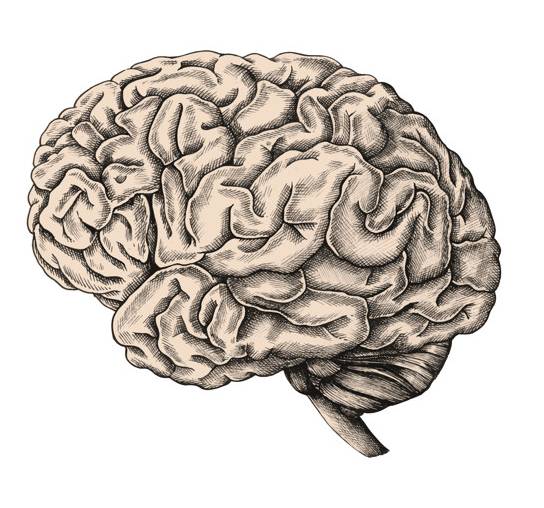
- The Myers-Brigg Personality Type Indicator test has been around for decades, but it continues to help students and professionals alike.
- There is accuracy in the personality profiles and their predictions towards careers.
- Constant research and updates to the Myers-Brigg personality test and the consistency of the profession of law will likely keep the test as a valuable measuring tool for prospective lawyers.
The most common way to get know yourself or someone else is through time. You sum up your own personality by examining past life choices made. With other individuals, it’s through ongoing communication and quality time spent together that you get to know their personality. What if you were a freshly graduated high school student looking to choose a field of study to go into for your college education? Or a law firm deciding between two equally qualified attorneys for a coveted position? In essence, what if you didn’t have the luxury of time? What if there was a way to speed up the process of getting to know yourself and others? There is...kind of...with the Myers-Briggs Personality Type Indicator (MBTI) test.
MBTI Test History
Katherine Briggs and Isabel Myers, a mother-daughter pair, essentially created the test. The test was however inspired by Carl Jung, founder of analytical psychology. He first familiarized and developed the concept of four personality archetypes that people would fall under in the 1920s. Inspired from Jung’s findings and for personal reasons of her own, Katherine Briggs decided to compose a questionnaire that would help identify personality types, therefore allowing more people to use type theory for their benefit—whether it be used in relation to themselves or in relation to others. With the help of several other psychologically astute minds, Katherine Briggs and Isabel Myers researched the components to create the questionnaire in the 40s-50s. The first version of the MBTI test was published in 1962.
What Does the Myers-Brigg Personality Test Assess?
Exactly what is the MBTI? Firstly, it’s composed of four different scales: 1. Introversion-Extroversion 2. Sensing-Intuition 3. Thinking-Feeling 4. Judging-Perception. There are sixteen different personality profiles. Each one is a combination of the eight functions of these scales and are as follows: ISTJ, ISFJ, INFJ, INTJ, ISTP, ISFP, INFP, INTP, ESTP, ESFP, ENFP, ENTP, ESTJ, ESFJ, ENFJ, ENTJ.
Myersbriggs.org took an excerpt from the MBTI Manual: A Guide to the Development and Use of the Myers-Briggs Type Indicator that further delves into the scales:
The Introversion-Extroversion scale deals with a favorite world and asks the question: Do you prefer to focus on the outer world or on your own inner world?
The Sensing-Intuition scale deals with information and asks the question: Do you prefer to focus on the basic information you take in or do you prefer to interpret and add meaning?
The Thinking-Feeling scale deals with decisions and asks the question: Do you prefer to look at logic and consistency or people and special circumstances, first?
Lastly, the Judging-Perceiving scale deals with structure and asks the question: Do you prefer to get things decided or do you prefer to stay open to new information and options?
As far as interpretation of the scales, to score as an introvert (I) does not mean that the individual lacks extrovert (E) qualities, it just means the individual possesses more (I) qualities then (E) qualities. No personality profile is perceived as better or worse in general, but could help indicate an individual’s general strengths and weaknesses.
Since it’s first publication in 1962, it is continually being updated to this day—accounting for the millions that have taken it worldwide, since its creation. This test is a multi-functional tool used to measure an individual’s personality type in relation to a variety of things including relationships, personal growth, and often used to decipher career interests and job compatibility. This is something Katherine Briggs and Isabel Myers thought other people would find useful as well, considering most people spend a majority of their life focusing on choosing or maintaining the right career.
To reiterate the last point, if the MBTI test could steer people towards a suitable career, could the results of the test predict the personality types most suitable to be lawyers?
The Top 5 Personality Types of a Lawyer
Sure enough, there was a study conducted that was featured in an article “The Lawyer Types” written by Larry Richard and published in the ABA Journal. The percentage of how lawyers, on average, ranked amongst the 16 different personality types of the MBTI test were as follows:
- ISTJ (17.8%)
- INTJ (13.1%)
- ESTJ (10.3%)
- ENTP (9.7%)
- INTP (9.4%)
Although the survey was taken over a decade ago, not many things have changed fundamentally in respect to the law profession and the MBTI test, making these results still accurate.
The number one profile “ISTJ” represents, according to the test, an Intuitive-Sensing-Thinking-Judging personality type. Looking back on the four scales on which each of these character traits is based (refer to ‘What Does the Myers-Brigg Personality Profile Assess?’), let us break down and assess. The profession of law highly values logic and certainty, as well as the individuals that navigate it (lawyers). Those who score the “ISTJ” profile are practical, factual, logical, organized, problem-solver types.
According to 16personalities.com, an MBTI test provider, the “ISTJ” profile can be referred to as the “logistician personality,” which make up 13% of the population. The most common careers among these personality types “revolve around institutions of respected tradition, authority, security, and established consistency.” It also listed “lawyer” as one of the top professions, in addition to military officers, judges, police officers and detectives.
However, it is important to note that when looking at the following personality types after the first, results as a whole show that the only thing the top 5 personality types have in common is the “thinking” personality trait. The Thinking-Feeling scale focuses on decisions and those that score “thinking” are individuals that prioritize logic and consistency over people and circumstances, which is essentially the foundation of law.
Conclusion
There is no doubt that the MBTI test can make it easier to personify one’s abilities and general thought processes, which therefore makes it easier to measure if an individual is well-suited for the profession of law. As the break down of the “ISTJ” personality profile shows, its results are undeniably accurate. However, the percentages of the top 5 personalities also show that there is a lot of variety in personality traits, excluding the “thinking” trait. So if your MBTI test result points toward “lawyer,” there’s a pretty good chance you have everything it takes to become one, but ultimately the decision and choice to pursue that profession is up to you.
For more information, look into these articles:
- Know Thyself.....Before You Join a Study Group, Look for a Job, or Change Careers
- Choosing a Law Specialty: Who Are You and What Do You Want
- 25 Reasons Most Attorneys Hate the Practice of Law and Go Crazy (and What to Do about It)
- Top 10 Characteristics of the Best Attorneys
Image source: Created by Rawpixel.com - Freepik.com




